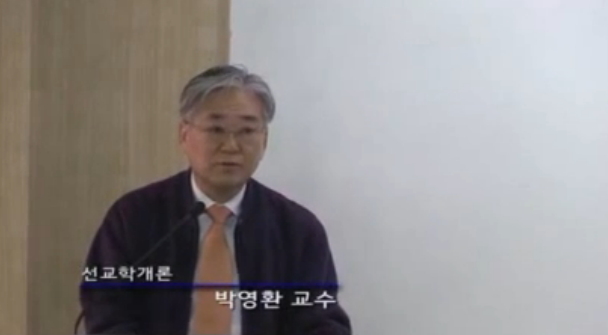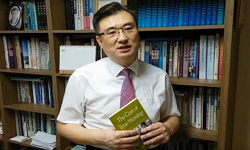This study is to disclose that the concept of ‘otherness’ constituting the core of Enrique Dussel’s liberation philosophy is based on the ‘Externality of Others’ and to reconstruct Christian mission discourses of liberation based on the exte...
http://chineseinput.net/에서 pinyin(병음)방식으로 중국어를 변환할 수 있습니다.
변환된 중국어를 복사하여 사용하시면 됩니다.
- 中文 을 입력하시려면 zhongwen을 입력하시고 space를누르시면됩니다.
- 北京 을 입력하시려면 beijing을 입력하시고 space를 누르시면 됩니다.
https://www.riss.kr/link?id=T15302514
- 저자
-
발행사항
서울 : 연세대학교 연합신학대학원, 2019
-
학위논문사항
학위논문(박사) -- 연세대학교 연합신학대학원 , 선교학 전공 , 2019.8
-
발행연도
2019
-
작성언어
한국어
-
주제어
엔리께 두셀 ; 타자성 ; 선교 ; 선교학 ; 해방 ; 연대 ; 공동실현 ; 라틴아메리카 ; 민중 ; 탈식민 ; 해방철학 ; 해방신학 ; Enrique Dussel ; Otherness ; Mission ; Missiology ; Liberation ; Philosophy of liberation ; Latin America ; People ; Decolonization ; co-realization
-
발행국(도시)
서울
-
기타서명
Co-realization of liberation through solidarity : mission going "Beyond (más allá)" : focusing on the Enrique Dussel's understanding of "Otherness"
-
형태사항
vi, 273 p. ; 26 cm
-
일반주기명
지도교수: 방연상
-
UCI식별코드
I804:11046-000000520499
- 소장기관
-
0
상세조회 -
0
다운로드
부가정보
다국어 초록 (Multilingual Abstract)
This study is to disclose that the concept of ‘otherness’ constituting the core of Enrique Dussel’s liberation philosophy is based on the ‘Externality of Others’ and to reconstruct Christian mission discourses of liberation based on the externality.
Dussel’ otherness refers to things beyond, so to speak different things outside of “sameness”. The goal of this study is to find out the possibility of a paradigm shift in mission that pursues postmodernity in Dussel’s otherness concept, which calls for determination of faith that goes to externalities facing the age of globalization and exclusion. Enrique Dussel denies European-centered and developmental myths by
emphasizing that the core of modernity is rational, liberal, and going out of its immaturity, and seeks to reevaluate and liberate the culture and values of the oppressed and concealed ‘others’ by modernity/colonialism. Latin American cultures that were considered “worthless, meaningless, trivial, and useless” in the western modernity can find Latin American identity in “extrinsic” or “otherness”, which can not be integrated into the whole logic of Western modernity. Dussel urges to awaken from the modern concept of man as a dualism and attempts to restore the identity of Latin America as the instant of pre-philosophical moments of “beyond” modern theology. This refers to the physical and existent daily life of the ‘human beings’. This is the theological discourse of “more here (más acá)”, which clarifies the reality of the poor, explicitly materializes it and develops it into theology.
Dussel, who developed the otherness of Emmanuel Levinas more concretely in the history and context of Latin America, calls the Europe-centered modernity myth and reveals that it has completely concealed American colonization. It is also a form of Christian mission. They believe that they are superior and others are inferior. They also believe that they are barbarous, and in “immaturity that they should be
responsible for” and believes that he dominance that they exercise for others is evangelization, civilization, modernization, and the calling of God. This is the ‘myth of modernity’ that Dussel refers to.
Dussel’s reasoning is not from the “Central,” but from the “Peripheral” and it becomes a fundamental criticism of the present totality, which is the hegemony of “center”. This is to hear the sound from beyond coming from the externality of the domination, and to meet and fuse with ‘others’ through free participation. It is not
a confirmation of oneself, but a matter of “ethical awareness”. The oneself (soiméme), a “responsible listener”, precedes all possible reflections and is identified as “Valuable Thing” being influenced by the cries and pleas of others. This philosophical orientation does not begin with “I think”, “I work” or “I conquer”, a
Western philosophical worldview composed of a self-centered totality based on “identity”. He begins with ‘the poor’ or ‘the marginalized or excluded’, the theoretical foundation of the underlying experience of otherness non-mystifying of the modern egology and criticizing the ‘moral individualism’ and the ideological
danger of human alienation. The philosophy from the subordinated and governed people begins with the mysteries of non-existence, nothingness, otherness, externality, and non-sense of “beyond” existing ontologies. Understanding on the otherness in his liberation ethic goes from Latin America and the poor to the concept of victim and goes beyond the regional thought of Latin America. This is a
historical and concrete thing, in other word, the responsible meeting with others, rather than a reflection or thought on oneself.
Based on this identity, he pursues the practice of “trans-modernity” that corealizes what modernity could not achieve by itself as a project of political, economic, ecological, erotic, educational, and religious liberation. It is a corealization of liberation through integrated solidarity between center/periphery, male/female, various races, ethnic groups, classes, civilization/ nature, and Western culture/the third world culture. It becomes possible by recognizing, criticizing, dissembling, and transcending the vertical, dominant, one-sided and partial, ‘modern governance’ which is the limitation of the existing western-centered
modernism, in other words, geopolitical asymmetry of the western world, western/non-western, center/periphery, subjectivity/otherness. The liberation philosophy based on the understanding of the otherness by Dussel is “endless accountability before the Infinite one”. “Responsibility” confronted with ‘others’ is not the emotion of the individual dimension such as subject-oriented “Compassion (natural sympathy)”. The “responsibility” is not to identify “others” to the “same,” but you are converted to the “Other”.
Openness to ‘beyond’ is not just go over the borderline of countries or culturalreligious borders but is getting out of my world. It is to constitute an opportunity of appearance of new things. The missionary discourse in Korean church should be changed from “Mission about others” or “Mission for others” to “Mission from
others” and “Mission toward others”, which means going ‘beyond’. Such mission is “Mission of others” and “Mission with others”.
국문 초록 (Abstract)
이 연구는 엔리께 두셀(Enrique Dussel)의 해방 철학의 핵심 범주를 구성하는 ‘타 자성’ 사상이 ‘타자의 외재성’에 근거하고 있음을 밝히고, 그 ‘외재성’에 근거한 해방 의 그리스도교 선...
이 연구는 엔리께 두셀(Enrique Dussel)의 해방 철학의 핵심 범주를 구성하는 ‘타 자성’ 사상이 ‘타자의 외재성’에 근거하고 있음을 밝히고, 그 ‘외재성’에 근거한 해방 의 그리스도교 선교 담론을 재구성한다. 두셀의 타자성은 저 너머(más allá)의 것, 언 제나 “동일성”의 바깥, 즉 다른 것(lo otro)이다. 지구화와 배제의 시대에 직면하여 외 재성으로 나아가는 ‘신앙적 결단’을 요구하는 두셀의 타자성 사상에서 탈근대성을 추 구하는 선교의 새로운 패러다임 변화의 가능성을 찾는 것이 이 연구의 목표다.
두셀은 근대성의 핵심이 합리적이고 해방적이며, 미숙함에서 벗어나는 것임을 강조 함으로써 유럽 중심적이고 발전주의적인 신화를 부정하며 근대성/식민성에 의해서 억 압되고 은폐된 타자들의 문화와 가치에 대한 재평가와 해방을 추구한다. 서구적 근대 성 속에서 “무가치하고 무의미하고 하찮고 쓸모없는 것”으로 여겨졌던 라틴아메리카 의 문화들은 서구적 근대성의 전체성 논리에 통합될 수 없는 “외재성’ 즉 “타자성”에 서 라틴아메리카의 정체성을 찾을 수 있다. 두셀은 이원론으로서의 인간의 근대적 개 념에서 깨어날 것을 촉구하며 라틴아메리카의 정체성을 근대 신학의 ‘저 너머’의 철학 이전의(pre-filosóficos) 순간에서 회복하려고 한다. 이것은 ‘인간’의 육체적이고 실존 하는 일상생활을 가리킨다. 이것은 신학적인 것의 “더욱 여기(más acá)”의 담론으로 가난한 자의 현실을 분명히 하고 명시적으로 구체화하여 신학화한다.
레비나스의 타자성을 라틴 아메리카의 역사와 상황 속에 구체적으로 발전시킨 두셀 은 유럽 중심적 근대성을 ‘신화’라고 하며 이것이 아메리카 식민화를 철저히 은폐해왔 음을 밝힌다. 두셀의 사유는 “중심”이 아니라 “주변부”에서부터의 사유로 “중심”의 헤게모니인 현재의 전체성에 대한 근본적 비판이 된다. 이것은 지배의 외재성에서부 터 오는 “저 너머(más allá)”에서 오는 소리를 듣는 것이며, 자유로운 참여를 통해 타 자와 만나고 융합되고 근접하는 것이다. 그것은 자신이나 자기 자신에 대한 확언이 아니라 “윤리적 인식”의 문제이다. “책임 있는 청취자”인 자기 자신(soi-méme)은 모 든 가능한 성찰에 선행하며, 타자의 외침과 탄원에 의해 영향을 받는 가치 있는 것으 로 확인된다. 이 철학적 지향은 “동일성”에 바탕을 둔 자기중심적 전체성으로 구성된 서구 철학적 세계관인 “사유하는 자아(yo pienso)”, “일하는 자아(yo trabajo)” 또는 “정복하는 자아(yo conquisto)”에서 시작하지 않는다. 그는 근대적 자아론(egologías) 을 비신비화하고, ‘도덕적 개인주의’와 인간 소외의 이념적 위험성을 비판하면서 타자 성의 근원적 경험의 이론적 토대인 ‘가난한 자’나 ‘소외되거나 배제된 자’에서 시작한 다. 종속되고 지배된 주변부 민중에서부터의 철학은 기존의 존재론의 ‘저 너머’의 비 존재, 무, 타자성, 외재성, 의미 없음의 신비에서 시작한다. 그의 해방윤리에서의 타자 성에 대한 이해는 ‘라틴아메리카’, ‘가난한 자’에서 ‘희생자’의 개념으로의 전환을 통해 라틴 아메리카의 지역적 사상 ‘저 너머(más allá)’로 나아간다. 이것은 자기에 대한 사 유나 성찰이 아니라 역사적이며 구체적인 것, 즉 타자와의 책임 있는 만남이다.
이러한 정체성에 근거하여 “정치적, 경제적, 생태적, 에로스적, 교육적, 그리고 종교 적인 해방의 기획으로서 근대성이 스스로 성취할 수 없었던 것을 공동-실현” 해가는 초근대성(transmodernidad) 해방의 실천을 추구한다. 그것은 “중심/주변, 남성/여성, 다양한 인종들, 종족집단들, 계급들, 문명/자연, 서양문화/제3세계 문화 간의 통합적인 연대를 통한 해방의 공동-실현(co-realización)” 이다. 이것은 기존의 서구 중심적 근 대론의 한계성, 즉 서양이라는 지정학적 비대칭성, ‘서구-비서구’, ‘중심-주변’과 ‘주체 성-타자성’이 상정하는 수직적이며 지배적인, 일방적이며 편파적인, ‘근대적 지배 구조’ 를 인식하고 비판, 해체하고 극복, 초월함으로써 가능해진다.
‘저 너머’ 에 대한 개방성은 단순히 국경의 경계나 문화적 종교적 경계를 넘어가 는 것이 아니라 내 세계에서 벗어나는 것이다. 한국교회의 선교 담론은 “타자에 관 한”, “타자를 위한” 선교가 아니라 “타자로부터”, “타자에게” 향하는 ‘저 너머’로 가는 선교로 전환되어야 한다. 이러한 선교는 “타자의 선교”이며 “타자와 연대하는 선교” 이다.
1 송상기, "“엔리케 두셀의 해방철학과 전지구화 시대의 비판윤리", ” 『이베로아메리카』. 제 10권 1호. -31, 2008
2 윤대선, "『레비나스의 타자철학-소통과 초월의 윤리를 찾아서』", 서울: 문예출판사, 2009
3 송상기, "“중남미 공동체주의와 자유주의의 관계와 공동체적 자유주의 모색", ” 『중남미 연구』 제29권1호 -366, 2010
1 송상기, "“엔리케 두셀의 해방철학과 전지구화 시대의 비판윤리", ” 『이베로아메리카』. 제 10권 1호. -31, 2008
2 윤대선, "『레비나스의 타자철학-소통과 초월의 윤리를 찾아서』", 서울: 문예출판사, 2009
3 송상기, "“중남미 공동체주의와 자유주의의 관계와 공동체적 자유주의 모색", ” 『중남미 연구』 제29권1호 -366, 2010














